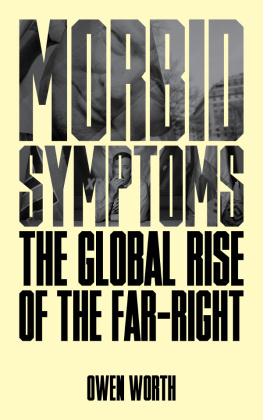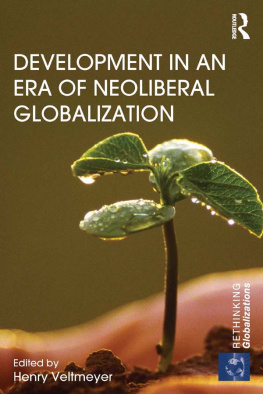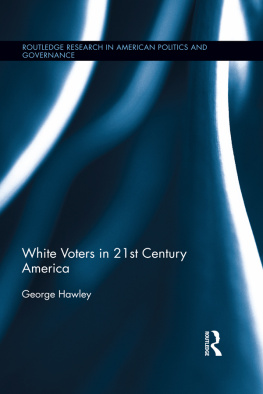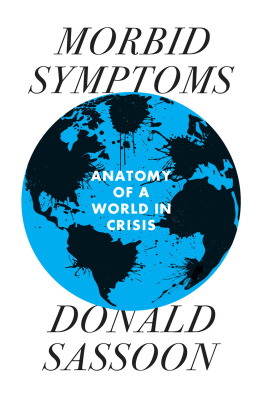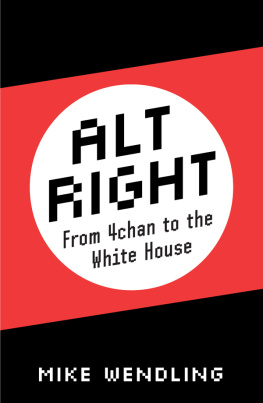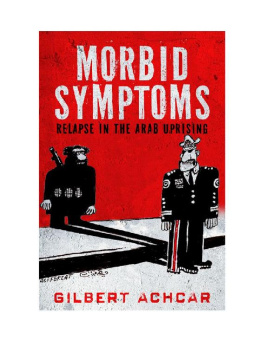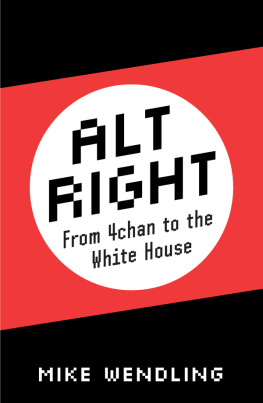
Thoughtful and very timely. It captures much of what is contradictory in the relationship between the politics of the far-right and neoliberal world order and addresses some of the key questions, not only in terms of how we explain the rise of the far-right, but how the left/progressive forces should respond to it.
Dr Richard Saull, Queen Mary University of London
Owen Worth provides a much-needed historical and economic perspective to the study of present-day extremism. By lucidly tracing the differences and, importantly, the similarities to the development of and themes pushed by the far-right across the Western world, this book provides a useful guide to the emerging transnational nationalism. Without succumbing to the more dramatic and hysterical predictions for the future, Morbid Symptoms identifies the political danger of recent developments and, most intriguingly, hints at possible solutions.
Michael Wendling, author of Alt-Right: From 4chan to the White House
About The Author
O WEN W ORTH is a senior lecturer in international relations at the University of Limerick. His previous books include Resistance in the Age of Austerity: Nationalism, the Failure of the Left and the Return of God ( 2013 ) and Rethinking Hegemony ( 2015 ).
MORBID SYMPTOMS
The Global Rise of the Far-Right
OWEN WORTH

Morbid Symptoms: The Global Rise of the Far-Right was first published in 2019 by Zed Books Ltd, The Foundry, Oval Way, London SE RR, UK.
www.zedbooks.net
Copyright Owen Worth 2019
The right of Owen Worth to be identified as the author of this work has been asserted by him in accordance with the Copyright, Designs and Patents Act, 1988
Typeset in Bulmer by Swales and Willis Ltd, Exeter, Devon
Cover design by Burgess and Beech
Cover photo Hossein Fatemi, Panos Pictures
Printed and bound by CPI Group (UK) Ltd, Croydon, CR0 4YY, UK
All rights reserved. No part of this publication may be reproduced, stored in a retrieval system or transmitted in any form or by any means, electronic, mechanical, photocopying or otherwise, without the prior permission of Zed Books Ltd.
A catalogue record for this book is available from the British Library
ISBN -- 78699 -- hb
ISBN -- 78699 -- pb
ISBN -- 78699 -- pdf
ISBN -- 78699 -- epub
ISBN -- 78699 -- mobi

To Daisy June Gordon.
The world is yours to reclaim.
Contents
This book has been a long time in the making and, as events around us continue to move at pace, its content has continued to alter and develop. The study has also benefitted from a number of interventions and individuals to whom I am grateful. Firstly, this work was supported by the Ministry of Education of the Republic of Korea and the National Research Foundation of Korea (NRF- 2015 SAAA 03049866 ). I would like to thank Kwang-Yeong Shin and his team at Chung-Ang University in Seoul for collaboration in the project. I would also like to thank Lawrence Rosenthal and Christine Trost at the Berkeley Center for Right-Wing Studies for hosting me during the Spring Semester, 2018 , which proved invaluable to my work on the US in particular. I would also like to thank the library staff both at Berkeley and at the Hoover Institution at Stanford for providing me with access to additional primary material. In addition, I would like to thank Andreas Bieler, Tony Burns and the Centre for the Study of Social and Global Justice at Nottingham University during the academic year 2017 2018 . I would also like to acknowledge those who aided through discussions in different mediums or interviews with me during this research.
I would like to thank a number of other scholars who I have discussed, dissected and often drunk with that were invaluable to the book. In particular, Barry Gills, Rick Saull, Alex Anievas, Mark Rupert, Barry Gills, Chris Farrands, Gerry Strange, Jason Abbott, Barry Ryan, Nick Kiersey, Phoebe Moore, Swati Parashar, Sabine Hirschauer, Stuart Shields, Daniela Tepe-Belfrage, Alex Nunn, Claes Belfrage, Dan Bulley, Alex Pritchard, Yuliya Yurchenko, Ruth Cain and David Bailey have all contributed to some of the main arguments in some form or other through engagement with some of this work. Closer to home, I would like to thank Neil Robinson, Maura Adshead, Scott Fitzsimmons and Rory Costello at the University of Limerick. At Zed Books, I particular want to thank both Ken Barlow for his enthusiasm for the project and Kim Walker for taking it to its completion.
Finally and personally I would like to thank Perys, Daisy, Rosa and in particular my one love and soulmate Sammi for being there for me at all times.
The financial crisis of 2007 2008 was always likely to lead to instability and unrest and to a sustained period where existing norms and practices were questioned and contested. The post-cold war neoliberal order that emerged out of the collapse of the Soviet Union and the wider push for greater global integration around a free market form of capitalism had found itself in structural crisis. The subsequent decade has seen a succession of policies linked to forms of austerity utilised as an attempt to maintain the principles of the prevailing order and subsequently of continuing the presiding governing logic of neoliberalism (). Yet a decade on from the crisis, these attempts of renewal and continuity have coincided with the emergence of new political movements that have sought to contest the management of the manner in which such a continuity might progress.
Whilst much has been made of the politics of resistance brought about by civil groups ().
As a result, questions have been raised about how the contemporary neoliberal world order might sustain itself in light of Trumps administration. Certainly those in more conventional streams of international relations (IR) who write on international order have suggested that the post-war cold war order is indeed in great danger of being dismantled ( the effect that this recent right turn will have on wider processes of neoliberalism within the ordering and the shaping of the global political economy has been considered less. Also, the wider structural effects that this right turn might have more generally on the nature and sustainability of capitalism itself need to be assessed in greater depth.
This introduction sets out to tentatively explore the role that the contemporary far-right has within the neoliberal order. In doing so it looks to touch upon the major questions that will be answered by critically examining the nature of the far-right throughout the book. In particular it asks whether the far-right represent a form of structural opposition to neoliberalism or whether it might complement it to a degree that would sustain its existence, albeit in a different form. It asks whether, even if the far-right does not necessarily represent a hegemonic challenge to the contours of free market capitalism, it reveals a world order that might be suffering from morbid symptoms and unravelling towards terminal crisis.
Neoliberalism and the Far-Right
As the governing ideological principle of the post-cold war, the concept and meaning of neoliberalism is one that has been debated in depth over the last decade. Since the financial crisis there are those that have suggested that the era of neoliberal governance is either in terminal decline or in deep crisis (). Certainly, whilst bank bailouts became a feature of the post-crisis environment, many at the time logically concluded that a new regulatory framework at the heart of the international financial system would develop. Instead, stringent economic policy in Euro Zone countries that appeared based upon the World Bank Structural Adjustment Policies, saw the politics of debt management and austerity adopted, which re-asserted neoliberalism as the central focus of the post-crisis environment.
Next page
